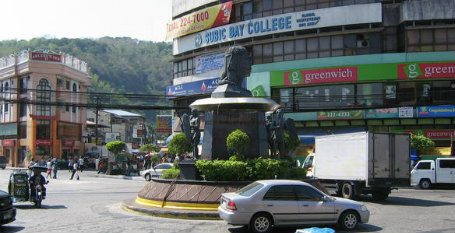Outrage over the murder of a Filipino transsexual, allegedly at the hands of a US Marine, has obscured rather than highlighted the troubling vulnerability of sexual minorities to discriminatory violence in the Philippines, according to a recent report by The China Post.
The body of 26-year-old Jennifer Laude, who also went by Jeffery, was discovered this October in a hotel in the red light district of Olongapo, a northern port city frequented by US servicemen on port calls. The primary suspect in the murder is a member of the US military.
The murder has inflamed longstanding tensions over the US military presence in the Philippines. Nationalist and leftist groups have seized the crime to issue a fresh round of critiques of the US’s involvement there, and to mobilize protestors calling for US withdrawal.
However, this framing fails to draw attention to another troubling aspect of the crime—it is also illustrative of the discriminatory violence visited upon LGBT Filipinos with alarming regularity. Often, the source of such hate crimes is the local community, rather than the US military. As The China Post reports, four other gay people were murdered around the same as Laude. In each instance, both the victim and assailant were Filipino. The brutality of the crimes, moreover, (one man was reportedly stabbed 33 times), suggest that they were motivated by homophobia.
Though the Philippines is generally thought to be tolerant of homosexuality, these four hate crimes may be extreme instances of widespread, endemic discriminatory violence toward gay Filipinos. According to an online survey of LGBT Filipinos conducted earlier this year by the advocacy group TLF share, one in 10 respondents had been attacked in the past five years owing to their sexuality. Laude’s murder speaks to the dangers facing LGBT Filipinos because of sexual discrimination as much as it does to the violence brought to the Philipines by the US military.
The body of 26-year-old Jennifer Laude, who also went by Jeffery, was discovered this October in a hotel in the red light district of Olongapo, a northern port city frequented by US servicemen on port calls. The primary suspect in the murder is a member of the US military.
The murder has inflamed longstanding tensions over the US military presence in the Philippines. Nationalist and leftist groups have seized the crime to issue a fresh round of critiques of the US’s involvement there, and to mobilize protestors calling for US withdrawal.
However, this framing fails to draw attention to another troubling aspect of the crime—it is also illustrative of the discriminatory violence visited upon LGBT Filipinos with alarming regularity. Often, the source of such hate crimes is the local community, rather than the US military. As The China Post reports, four other gay people were murdered around the same as Laude. In each instance, both the victim and assailant were Filipino. The brutality of the crimes, moreover, (one man was reportedly stabbed 33 times), suggest that they were motivated by homophobia.
Though the Philippines is generally thought to be tolerant of homosexuality, these four hate crimes may be extreme instances of widespread, endemic discriminatory violence toward gay Filipinos. According to an online survey of LGBT Filipinos conducted earlier this year by the advocacy group TLF share, one in 10 respondents had been attacked in the past five years owing to their sexuality. Laude’s murder speaks to the dangers facing LGBT Filipinos because of sexual discrimination as much as it does to the violence brought to the Philipines by the US military.












 Printable Version
Printable Version

















Reader's Comments
Hello my dear,
i am happy to contact you after
viewing your profile and it interest
me to contact you for a genuine relationship,
please contact me here(nicolemakuza1992@hotmail.com)
so that i will share my feelings with
you for further communication.
Thanks, your friend Nicole.
(nicolemakuza1992@hotmail.com)
Please log in to use this feature.